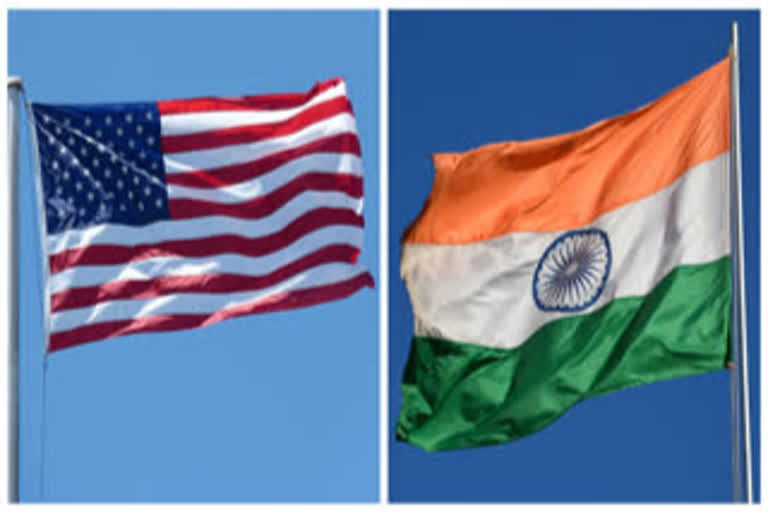New Delhi: The U.S State Department in its 2020 human rights report has said that India has significant human rights issues including- unlawful and arbitrary killings, extrajudicial killings perpetrated by police; torture and cases of cruel, inhuman, or degrading treatment; torture by prison officials; arbitrary arrest and detention by government authorities; restrictions on freedom of expression and the press, including violence, threats of violence, or unjustified arrests or prosecutions against journalists, use of criminal libel laws to prosecute social media speech, censorship, and site blocking; overly restrictive rules on non-governmental organizations (NGOs).
The report also pointed out that there are frequent reports of widespread corruption at all levels of Indian government; violence and discrimination targeting minorities based on religious affiliation or social status; forced and compulsory child labour, including bonded labour.
In its 2020 country reports on Human Rights Practices to the US Congress, the state department noted that despite government efforts to address abuses, a lack of accountability for official misconduct persisted at all levels of government, contributing to widespread impunity. “Investigations and prosecutions of individual cases took place, but lack of enforcement, a shortage of trained police officers, an overburdened and under-resourced court system contributed to a small number of convictions”, it added.
Also read: Biden, UK PM voice concerns about China's response to Xinjiang-related sanctions
However, India in the past rejected such similar reports. At the same time, it may be noted that the US report pointed out the improvement in the human rights situation in Jammu and Kashmir and that the Government continued making efforts to restore normalcy in J&K.
“The government continued taking steps to restore normalcy in Jammu and Kashmir by gradually lifting some security and communications restrictions. The government released most political activists from detention”, it added.
“In January the government partially restored internet access; however, high-speed 4G mobile internet remained restricted in most parts of Jammu and Kashmir. The government began a process to redraw electoral constituencies but did not announce a timeline for local assembly elections. Local district development council elections took place in December in which a coalition of Kashmiri opposition parties won the majority of seats”, the US state department said in its report.
Separatist insurgents and terrorists in Jammu and Kashmir, the Northeast, and Maoist-affected areas committed serious abuses, including killings and torture of armed forces personnel, police, government officials, and civilians, and recruited and used child soldiers, the report added.
Also read: Tough call for India as Sri Lanka set to face resolution at 46th session of HRC: Expert
Moreover, the state department in its report listed several significant human rights issues in India. In a section on the arbitrary deprivation of life, the report highlights that there were reports that the government or its agents committed arbitrary or unlawful killings, including extrajudicial killings of suspected criminals and insurgents.
It pointed out that on February 6, then minister of state for home affairs Hansraj Gangaram Ahir presented in the upper house of parliament data from the National Human Rights Commission (NHRC), noting that 22 alleged: “fake encounters” with police occurred between January 2018 and January 20, 2019. Ahir stated that 17 of these alleged encounters occurred in the state of Uttar Pradesh. An “encounter death” is a term used to describe an encounter between the security or police forces and alleged criminals or insurgents that results in death.
“The NHRC reported a similar number of cases in 2017-2018. Until January 20, the NHRC recommended 14.5 million rupees ($203,000) as monetary compensation for 15 “fake encounter” cases. On January 19, four UN human rights experts expressed concern about allegations of at least 59 extrajudicial killings by police in Uttar Pradesh since 2017. The experts sent “detailed information” to the government on 15 of the cases, most deaths involving individuals from Muslim communities”, the report underlines.
The US report also takes note of several reports of killings by terrorist groups. “On March 22, terrorists from Lashkar-e-Taiba, a U.S.-designated terrorist organization, killed 12-year-old Atif Mir in Shopian District in Jammu and Kashmir. The terrorists allegedly held Mir hostage during a gunfight with Indian security forces. There were reports in late 2019 of militants in Jammu and Kashmir intimidating businesses and killing migrant labourers to constrain economic activity”, the report said.
On a similar note, in its 2020 Country Reports on Human Rights Practices in Pakistan section, the US State Department mentioned that there was a lack of Pakistan’s government accountability, and abuses often went unpunished, fostering a culture of impunity among perpetrators, whether official or unofficial. Authorities seldom punished government officials for human rights abuses.
The report also listed out thousands of significant human rights issues in Pakistan including unlawful or arbitrary killings by the government or its agents, including extrajudicial killings; forced disappearance by the government or its agents; torture and cases of cruel, inhuman, or degrading treatment or punishment by the government or its agents; arbitrary detention; harsh and life-threatening prison conditions; political prisoners; politically motivated reprisal against individuals located outside the country; arbitrary or unlawful government interference with privacy; serious restrictions on free expression, the press, and the internet, including violence against journalists, unjustified arrests and disappearances of journalists, to name a few.
Also read: UN expresses concern over rising atrocities in Myanmar



